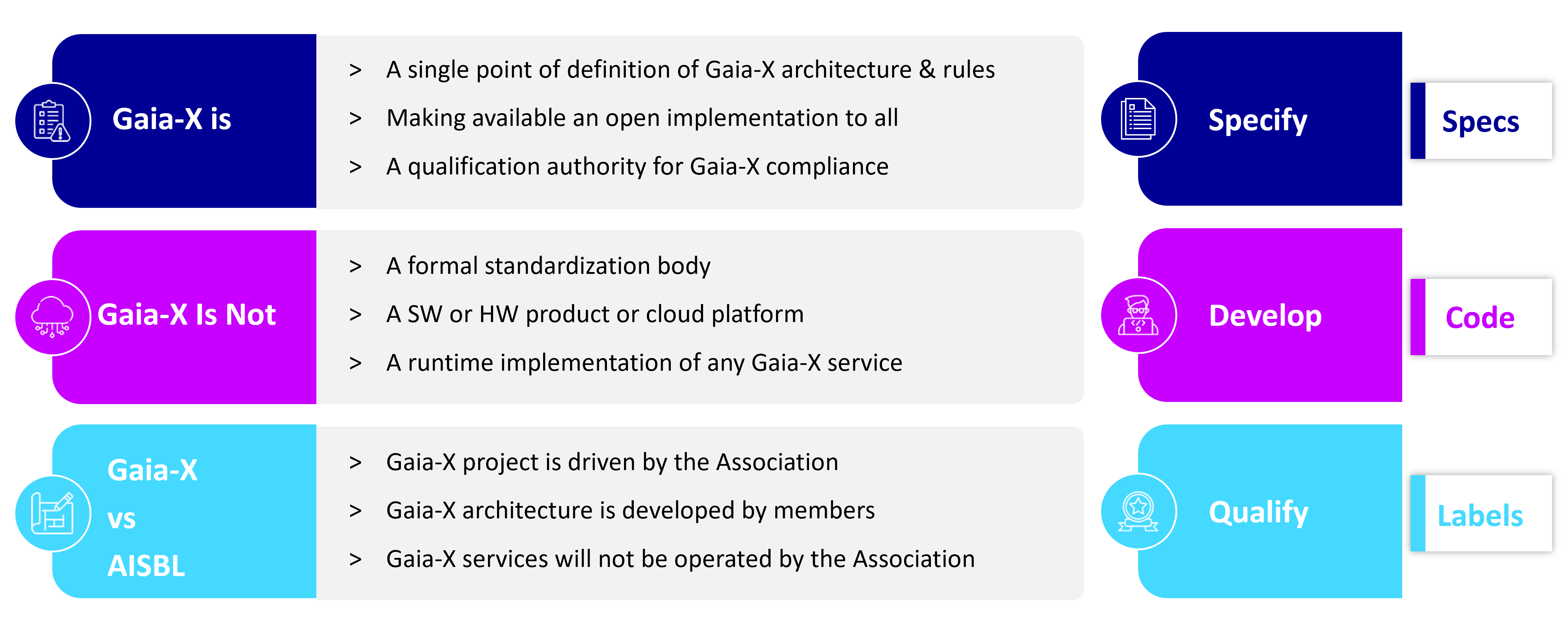What is Gaia-X?

Created in 2021 as a private non-profit association, Gaia-X brings together a community of organisations around the common goal of boosting the European data economy, enabling the creation of common data spaces, in full alignment with the objectives of the EU data strategy, and building a common open standard for transparent, controllable and interoperable data infrastructures for the exchange of reliable data.
It advocates a federated and secure data infrastructure through which data is shared, with users retaining control over access to and use of their data. It enables the creation of links between many cloud computing service providers in a broader, more transparent and fairer ecosystem to drive the European economy of the future.
Data is increasingly a critical factor in creating new business models, driving the creation of innovation ecosystems and promoting economic competitiveness and prosperity.
To boost the European Union's position in the new economy of data and cloud computing, it is necessary to create an open digital ecosystem that allows European companies to compete globally, particularly SMEs, which are the main builders of Europe's wealth and well-being.
It is in this context that Gaia-X emerges as a project born in Europe, for Europe, which aims to create an open, secure and reliable federated data aggregation and cloud computing infrastructure.
What’s it all about?
Gaia-X is concerned with the development of policies and rules, regulatory and technical frameworks, including the development of open source software, covering three main types of deliverables, namely specifications, open source code implementations and automated compliance checking tools.
Gaia-X is developing standards for market adoption and expects these to become full standards approved by traditional standardisation bodies.
Gaia-X is not developing new software or hardware products, nor a new physical cloud.
Gaia-X is adopting existing standards and expertise in its field of activity and extending them where necessary to achieve full transparency, security, sovereignty, controllability and fairness in data sharing.